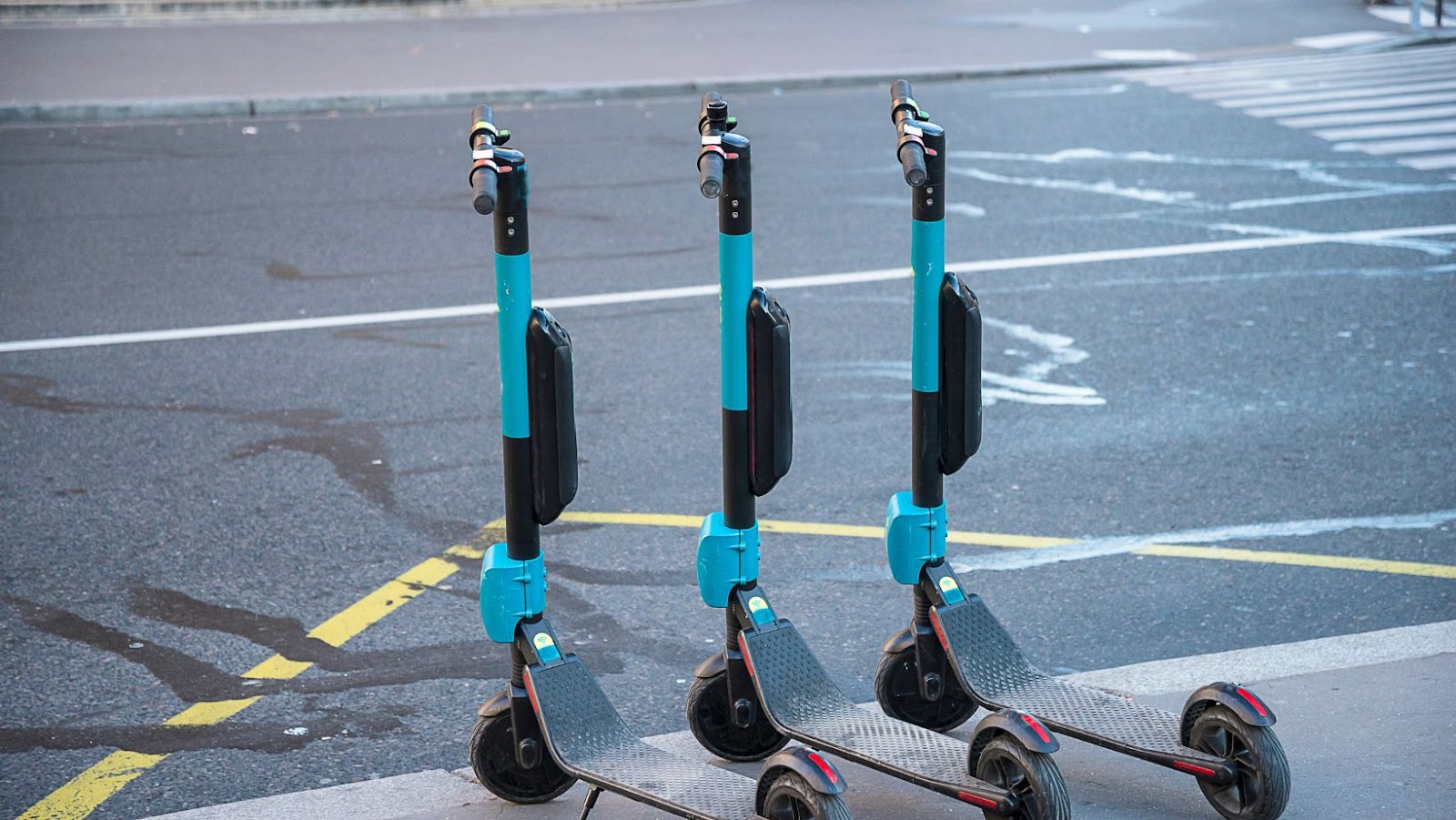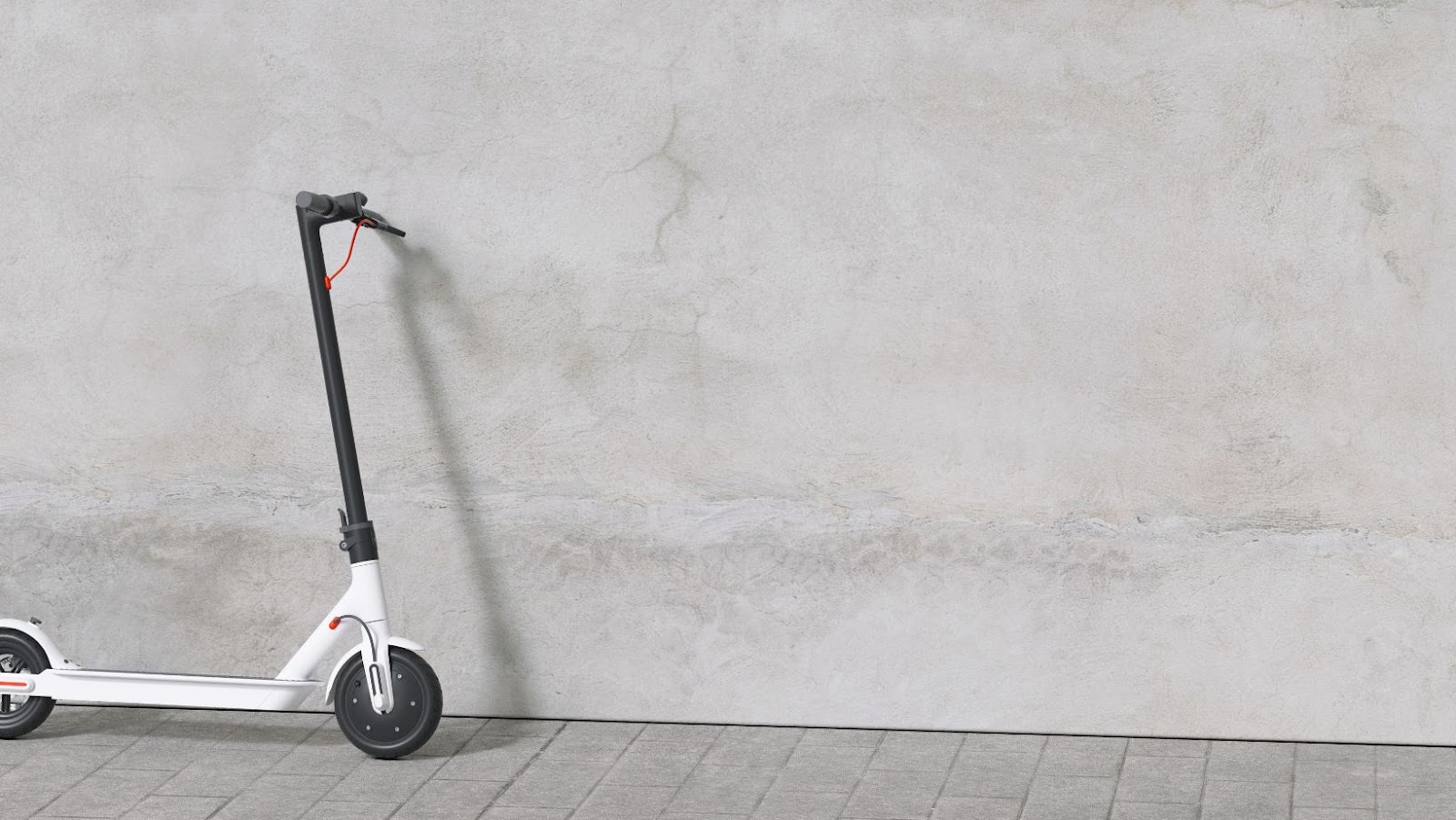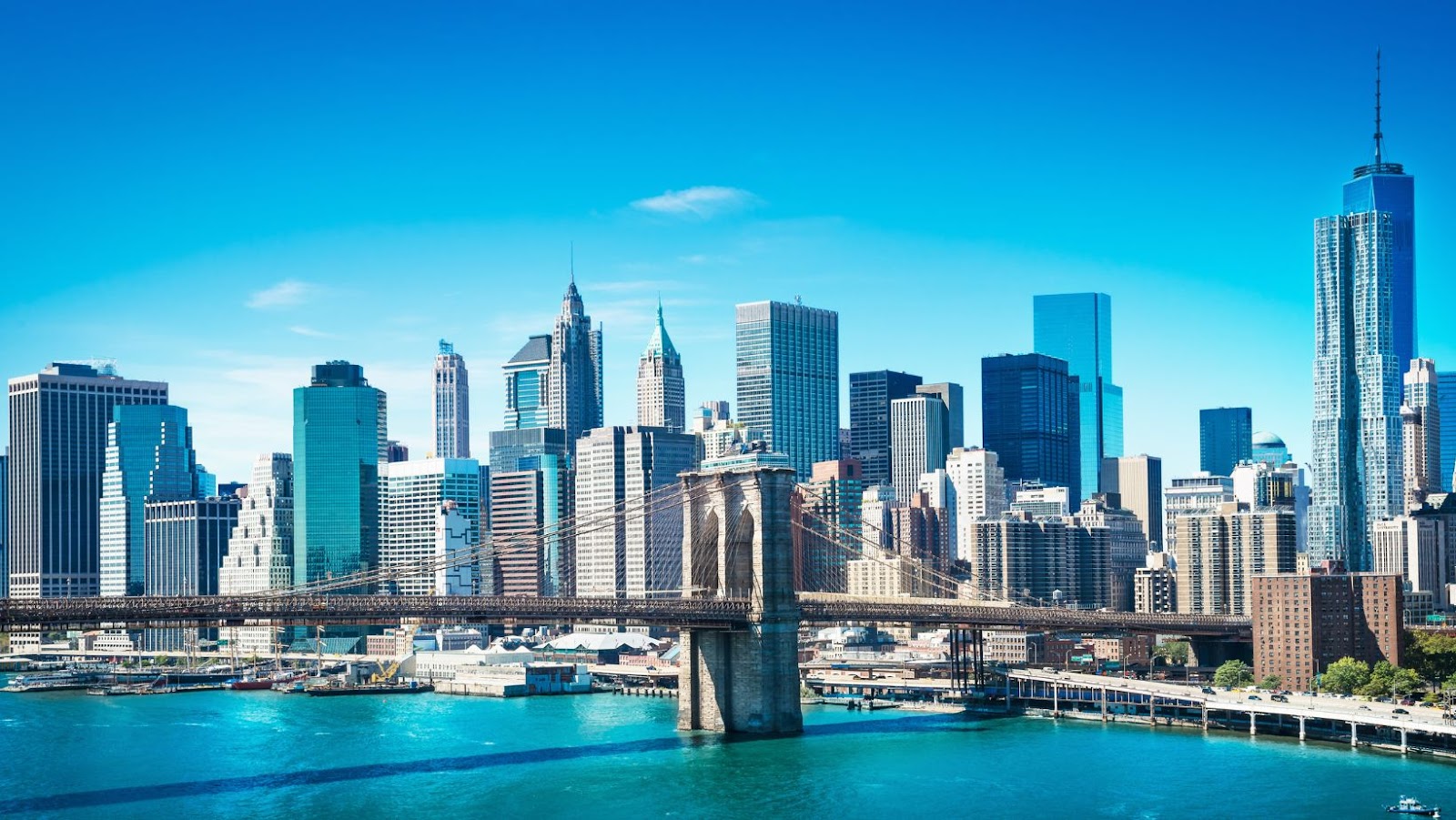E-scooters are becoming increasingly popular in cities worldwide and present an innovative and cost-effective way to facilitate transportation in urban areas. In New York City, introducing e-scooters has raised both excitement and concerns. This paper will examine the potential challenges of implementing e-scooters as a form of public transportation in this densely populated metropolis.
The use of electric scooters can have a wide range of positive impacts on NYC, including increased access to affordable transportation, reduced traffic and air pollution, decreased traffic accidents, and improved sustainability. However, numerous potential impediments could discourage the successful introduction of this mode of transit – from safety considerations for riders, to policing scooter rental companies’ operations and data sharing policies. There is also the question of how well existing public infrastructure is suited for accommodating e-scooters and whether local regulation should be adjusted to factor in their presence.
This paper seeks to explore these issues through a qualitative narrative approach discussing relevant social aspects and a quantitative analysis providing important data-driven insights into how e-scooter implementation could impact New York City. It is intended for those looking to understand what elements must be considered before moving forward with this ambitious project.
Table of Contents
Bird, Lime and Veo Selected for NYC E-scooter Pilot
E-scooters are electric vehicles that are gaining popularity among commuters and are becoming frequent in many cities worldwide. The introduction of e-scooters in NYC is an effort to reduce the amount of vehicular traffic, emissions, and noise pollution in the city. Bird, Lime, and Veo were selected for the city’s e-scooter pilot program, and the impact of this initiative will determine the future of e-scooters in NYC. Let’s take a closer look at the challenges and potential benefits of implementing an e-scooter program in NYC.
Advantages of E-Scooters
E-scooters are a form of alternative transportation that has become popular in various cities worldwide. They are electric vehicles that use a rechargeable battery and can be used for distances up to 20 km per charge or rides of up to an hour. As a result, e-scooters offer a range of advantages to commuters and city dwellers alike.
The most important benefit of e-scooters is that they provide an economical alternative to cars and public transport. In comparison to cars, e-scooters are much less expensive, making them more accessible for those on limited budgets. Furthermore, because the scooters run on batteries rather than fuel, they produce no emissions and can be used in enclosed spaces with less punishing restrictions on noise pollution. Additionally, because e-scooters occupy significantly less space than cars, they reduce traffic congestion in busy urban areas, leading to shorter journey times.
Another advantage is convenience; riders can pick up a scooter anywhere within the service area and drop it off at their destination. Their portability means commuters have greater flexibility when travelling short distances and don’t have to rely on expensive taxi services. Moreover, providing a shared mode of transport like scooter rental services helps reduce the need for single occupancy vehicle journeys, reducing travel costs further and reducing automobile-related carbon dioxide emissions even further.
Finally, as part of their mission, many companies providing E-Scooter rental services promote safer streets by providing riders with helmets, encouraging safe riding practices, and educating users about local laws regarding the operation of e-scooters vehicles in certain jurisdictions (e.g., no riding on sidewalks). All-in-all these initiatives contribute towards improved road safety for cyclists and pedestrians alike throughout NYC communities
Disadvantages of E-Scooters
E-scooters have the potential to provide a convenient, low-emission form of mobility. However, their implementation presents certain challenges that must be addressed.
New York City is particularly ill-suited for e-scooter programs due to its density and limited available public space. The most significant disadvantages of e-scooters include safety concerns, congestion issues, and limited infrastructure. In particular, people may use them unsafely without helmets or fail to ride in appropriate areas, creating hazardous situations for pedestrians or other vehicles. Additionally, the denseness of the city limits parking spaces for e-scooters and can impact congestion when shared scooters are parked erratically on sidewalks or roadsides. Finally, current NYC bicycle infrastructure requires expansion to support larger numbers of scooter riders. New biking lanes separated from roads and sidewalks must be installed by physical barriers like curbs or medians.
Furthermore, if implemented without proper regulations or responsibly allocated resources, there exist potential risks related to environmental damage and racial justice issues that might arise with any e-scooter program in the city.

That is why local authorities must first give thorough consideration before making any decision regarding implementation in New York City’s urban environment.
Challenges of Implementing E-Scooters in NYC
In February 2021, Bird, Lime, and Veo were selected for a pilot program to bring e-scooters to New York City. This would be a big change for the city and will have many implications in terms of safety and transportation. This article will examine some of the challenges of implementing e-scooters in NYC.
Safety Concerns
With the potential of increased popularity of electric scooters in large cities like New York, safety has become a major concern. While electric scooters can provide the last-mile transportation benefits they were designed for, they can also be dangerous; more than 1000 adults were seen in emergency rooms due to e-scooter related injuries in 2018. Additionally, Federal Motor Vehicles Safety Standards are currently unavailable for shared e-scooters, which many consider a public safety hazard.
Safety is an especially pressing issue considering electric scooters’ prevalence in New York City. Despite multiple attempts by various companies and entities, electric scooter use is still largely prohibited within the city. Some restrictions on usage have been relaxed, but this has led to an increase in reckless cycling behaviours within the city limits. This may stem from riders feeling invincible given their low speed (they cannot exceed 20mph).
Electric scooter riders should exercise extra caution when riding amidst busy streets given their smaller size and vulnerability to larger cars and other vehicles. Additionally helmet use should always be promoted regardless of how experienced someone may feel riding one of these devices; helmets are proven effective at mitigating serious injuries due to electric scooter related accidents. Various cities have passed initiatives mandating helmets while others require signage reminding people to do so while there are some such as Rome that requires fines if you’re caught without one on a public roadway or sidewalk yet there isn’t an overarching policy yet set forth by NYC council members requiring personal protective equipment while riding any type of motorised locomotion device such as e-scooters which offers potential relief for those concerned with personal safety while participating in this new cultural phenomenon.
Regulatory Issues
One of the biggest potential challenges for e-scooter companies looking to enter the New York City market is navigating the complex regulatory landscape. According to New York City Council Member Carlos Menchaca, any business seeking to deploy e-scooters must obtain all relevant permits and licences from local, state and federal authorities in New York and New Jersey as scooter companies cannot simply bypass a web of regulations. The primary regulatory bodies governing the implementation of e-scooters in NYC is the Department of Transportation (DOT), Department of Consumer Affairs (DCA), and Taxi & Limousine Commission (TLC).
The DOT works closely with public officials, advocates, and community stakeholders to ensure that rules are followed. The DOT also has authority over where new moped sharing companies can operate on streets within city limits, meaning that scooters can only be deployed in areas approved by their respective agency. In addition, they must strive for safety standards consistent with those set by the National Highway Traffic Safety Administration (NHTSA) . Finally, any company deploying electric bikes or scooters must have a valid Business Operating License from NYC’s TLC before hitting the streets.
It should also be noted that legal impediments can challenge even established companies operating in other states – like California – when those businesses enter the NYC market. For example Bird was heavily fined by California regulators for failing to obtain all proper licences before their operations starting in San Francisco so it may face similar issues if it chooses to open up shop here too . All these regulations serve as reminder that it won’t be easy entering a place like NYC but they should not stand in way of responsible companies that come through proper channels
Cost of Implementation
The implementation of e-scooters in New York City can be costly due to the high cost of purchasing and maintaining the fleets of scooters, as well as the installation cost of infrastructure such as bike lanes, parking stations and other related street furniture. In addition, the overhead associated with licensing, insurance and riders’ safety must also be considered. Another important factor is the need for an effective system to ensure that the scooters are not misused or vandalised. Furthermore, there is a need to deploy adequate resources for public education so that riders understand how to safely operate e-scooters within the city’s regulations and rules.
Due to their diminutive size, e-scooters may be difficult to detect by passing motorists which can present another safety hazard. There is also potential conflict with pedestrians who may find it difficult to adjust their walkways to accommodate users on industrial sidewalks. E-scooter users must abide by strict speed limits while they operate on bike lanes or sidewalks to ensure rider safety.

In addition, local governments need to formulate effective regulations such as permit processes or geographic restrictions before launching e-scooter programs in a city like New York so that public roads remain safe for all road users.
The Selected Companies for the NYC E-Scooter Pilot
New York City has officially partnered with three companies to launch an e-scooter pilot program. The chosen companies are Bird, Lime and Veo. This is an important development for the city and these companies as it will allow them to explore the usage of electric scooters for transportation and leisure. This article will look at the selected companies and their challenges when implementing e-scooters in NYC.
Bird
Bird is a California-based startup that has led the micro-mobility industry since its founding in 2017. The company offers electric scooters that are shared via mobile apps. For example, in the NYC e-scooter pilot, Bird will provide 250 scooters in Brooklyn to support short trips that help reduce car trips. The scooters are available for rent through a mobile app, with a two dollar unlock fee and 15 cents per minute to ride.
Bird’s scooters are powered by an electric motor and have been proven safe to ride. They come with safety tips and instructions, including wearing helmets and riding on bike lanes or roads designated for cyclists when available. Riders must be at least 18 years of age and must have a valid driver’s licence or state ID to rent a Bird scooter. Bird also has several safety features built into its platform, such as allowing only registered riders over 18 years of age, requiring users to give feedback before unlocking a scooter, displaying real-time policy updates on app, GPS speed limits for users based on local laws, and providing rider insurance for any damage related incidents.
Lime
Lime is an American transportation company and one of the chosen companies for the New York City e-scooter pilot program. Lime has plans to bring 500 electric scooters to New York City in select areas. These scooters allow riders to quickly get from point A to point B and easily access shared bike paths and parking spaces.
To participate in the pilot program, companies such as Lime must adhere to certain safety regulations established by the NYC Department of Transportation, including appropriate insurance coverage and safety education for scooter users. They are also responsible for maintaining their fleet of e-scooters so they remain easily accessible and safe for riders. Additionally, they must properly dispose of retired scooters in compliance with local regulations.
Lime also collaborates with local officials and advocates throughout New York City as part of their commitment to providing equitable access to EV transportation solutions in all NYC neighbourhoods. In addition, they provide training and education on e-scooter use, present unique job opportunities for local youth, promote active transportation modes such as walking and biking, partner with community organisations on neighbourhood projects, host events such as helmet giveaways, food donations and cleanups, provide grants for local nonprofits supporting transit equity initiatives, push forward public transportation reform campaigns, among many more positive initiatives that help create safer communities in NYC.
Veo
Veo is a company that focuses on green and sustainable transportation solutions. It strives to provide a safe and dependable service for commuters, residents, and tourists. Founded in 2019, Veo’s mission is to launch financial equity in the urban transportation equation, creating accessible micro mobility for all riders.
The company launched its electric scooter pilot program in New York City from October 2021 to April 2022. This program aims to promote equitable access to shared mobility while introducing safer streets throughout the city. As part of the e-scooter pilot program, Veo will deploy thousands of scooters across NYC’s five boroughs with operations based in Brooklyn and Queens.
Veo has developed proprietary technology called “triphealth” to ensure rider safety, which allows customers to take control of their ride by monitoring speed and driver behaviour. In addition, the electric scooters are equipped with geo-fencing technology, preventing them from entering controlled areas such as Central Park and reducing maximum speeds when travelling through sensitive neighbourhoods or school zones. All electric scooters must also have secure locks attached when not in use.

By participating in the NYC e-scooter pilot program, Veo is proud to bring safe and reliable personal transportation options within reach of all New Yorkers regardless of their postal code or income level enabling them the freedom of movement throughout one of the greatest cities on earth.
Conclusion
In conclusion, although several challenges present problems when implementing e-scooter services in NYC, the scooter flow has been successful. Financial viability of such services will continue to be one of the major challenges for the further development and integration of e-scooters within the city. Nevertheless, cities must find creative solutions to control economical hurdles to promote innovative technology and provide greater mobility access for their citizens. With appropriate planning, analysis and implementation measures, NYC could have a well-regulated system for service providers, providing safe and efficient use of shared scooters.




